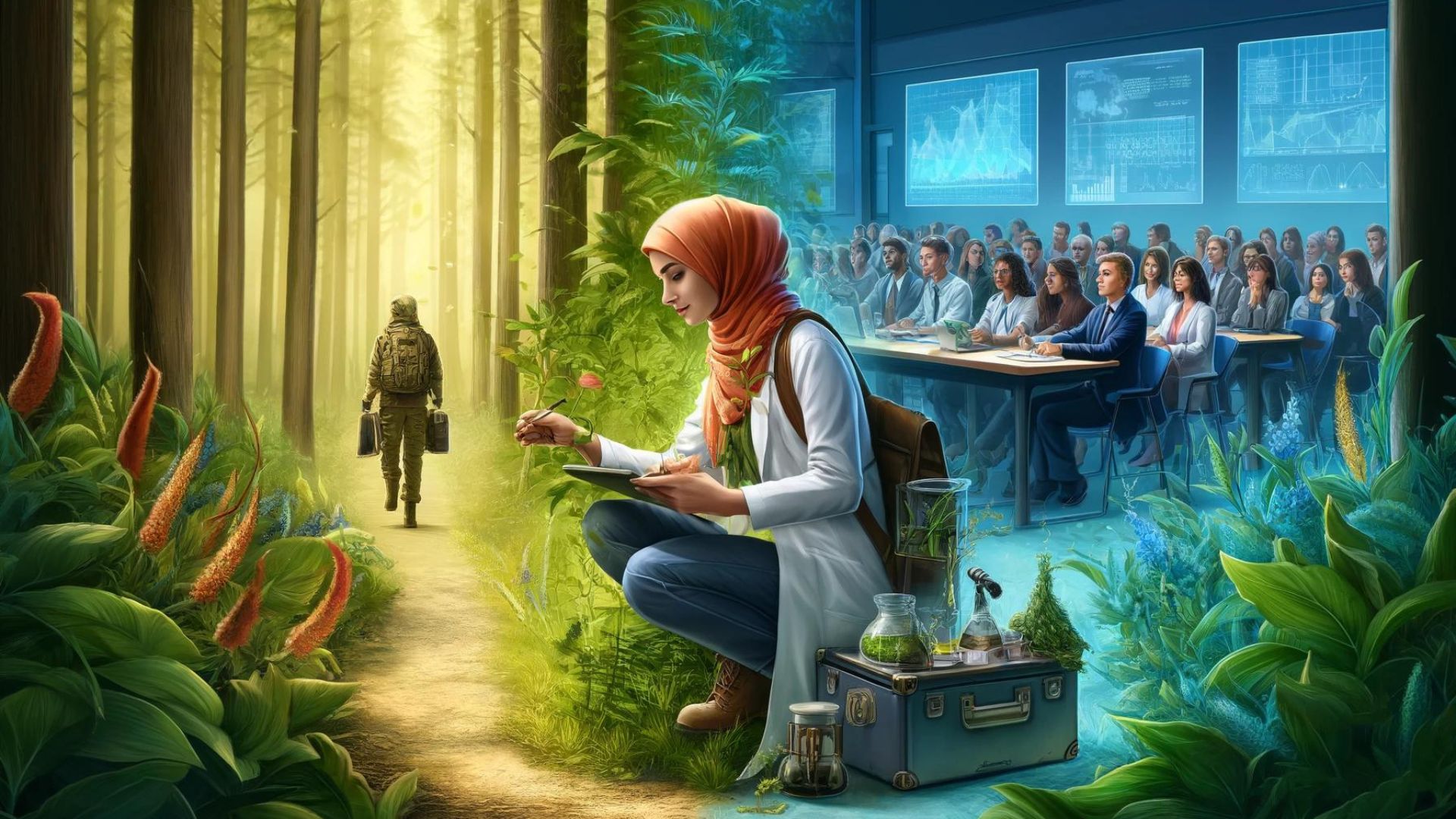Picture this: You’re hiking through a pristine forest, collecting water samples for testing. Or maybe you’re in a lab, analyzing data to combat pollution in your community. Or perhaps, you’re at a town hall meeting, advocating for sustainable policies based on your research. This is the life of an environmental scientist.
Guardians of Our Planet
Environmental scientists are like detectives for the environment. They study the world around us – the air, water, soil, and ecosystems – to identify threats and develop solutions for a healthier planet. Their work is crucial, informing policies and practices that protect our natural resources.
What Do They Actually Do?
The field is wide-ranging! Here are some things environmental scientists might work on:
- Climate Change Research: Studying how rising temperatures affect our oceans, weather, and plant and animal life.
- Pollution Control: Analyzing air and water quality or developing cleanup plans for contaminated sites.
- Sustainability Consulting: Advising businesses and cities on how to reduce their environmental footprint.
- Wildlife Conservation: Researching endangered species and developing strategies to protect their habitats.
The Path to Becoming One
- Education: A bachelor’s degree in environmental science or a related field like biology or chemistry is often a starting point. Many environmental scientists pursue master’s degrees or PhDs to specialize.
- Passion & Skills: A love for the outdoors, problem-solving skills, strong research abilities, and data analysis are key.
- Diverse Fieldwork: Environmental scientists work in labs, offices, and in the field, sometimes in remote locations or challenging weather. Be ready for adventure!
The Bigger Picture
The world needs environmental scientists, now more than ever. If you are passionate about:
- Finding solutions: You’ll tackle complex environmental problems with a mix of science and innovation.
- Real-world impact: Your work directly contributes to protecting our planet’s health and shaping its future.
- The beauty of nature: You’ll have a fascinating connection to the natural world, from its vast landscapes to its microscopic wonders.
Action Point
Interested in this career? Here’s what you can do:
- Explore: Read online profiles of environmental scientists or reach out to interview one in your area.
- Volunteer: Gain hands-on experience with conservation organizations or local environmental initiatives.
- Start learning! Take courses on environmental issues, ecology, or sustainability.
The path to becoming an environmental scientist is a fulfilling one. Could you be the one to uncover the next breakthrough or advocate for a healthier planet? The journey starts with you!
Why Should You Care?
- Environmental challenges demand solutions: Learning about environmental science careers highlights the need for scientists dedicated to solving issues like climate change and pollution.
- Potential for a fulfilling career: This field offers opportunities for those who love science, nature, and want to make a positive impact on the world.
- Understanding our impact on the planet: Even if you don’t pursue this career path, appreciating the work of environmental scientists helps us make more informed choices that protect the environment.
Key Takeaways
- Environmental scientists play a vital role in identifying and solving environmental problems to protect our planet.
- The scope of work for environmental scientists is diverse, ranging from research to policy advocacy.
- A combination of education, passion, and a variety of skills is key to success in this field.
- The demand for environmental scientists is likely to increase as environmental challenges become more pressing.
Keywords
- Environmental scientist: A professional who studies and analyzes environmental problems to find solutions that protect natural resources and promote sustainability.
- Ecosystem: A community of living and nonliving organisms interacting within a specific environment.
- Climate change: Long-term changes in global temperature and weather patterns, largely driven by human activities that release greenhouse gases.
- Pollution: Contamination of air, water, or soil with harmful substances that disrupt natural processes.
- Sustainability: Practices that meet the needs of the present without compromising the ability of future generations to meet their own needs.
- Wildlife conservation: Efforts to protect wild animals and their habitats, ensuring the survival of biodiversity.
- Fieldwork: Research conducted outside of a laboratory, often involving the collection of data and samples in natural environments.
- Bachelor’s degree: An undergraduate degree awarded by a college or university, typically requiring four years of study.
- Master’s degree: A graduate degree signifying specialized knowledge in a field, usually taking 1-2 years beyond a bachelor’s.
- PhD: The highest academic degree, awarded for extensive original research leading to a significant contribution within a field.
Frequently Asked Questions
- What are the different specializations within environmental science? Some popular specializations include climate science, ecology, conservation biology, environmental chemistry, and environmental policy.
- What’s the job outlook for environmental scientists? The job outlook is positive, with projected growth faster than average due to increasing environmental concerns.
- Can I make a good living as an environmental scientist? Salaries vary depending on experience, education, and location, but the potential for a comfortable living exists.
Myth Buster
- Myth: Environmental scientists are just “tree-huggers.”
- Reality: Environmental scientists possess rigorous scientific knowledge, utilize cutting-edge technology, and their work is grounded in evidence-based solutions.
Let’s Talk!
- Are you surprised by the variety of work environmental scientists do?
- If you could research one environmental problem, what would it be?
- Do you think more young people should be encouraged to pursue environmental science as a career? Why or why not?
Share your thoughts in the comments below!










0 Comments